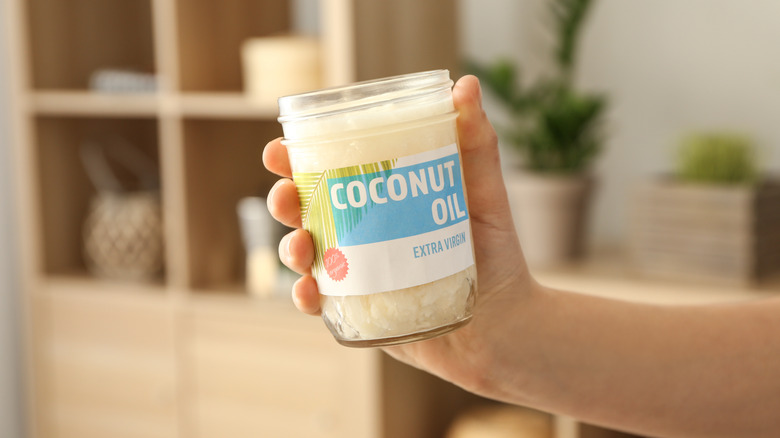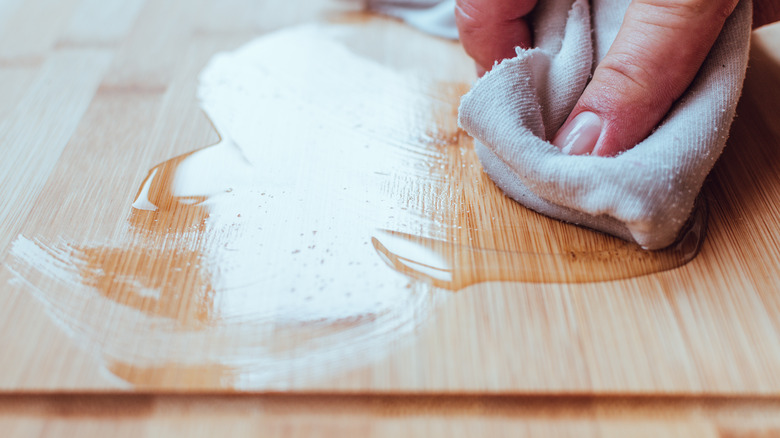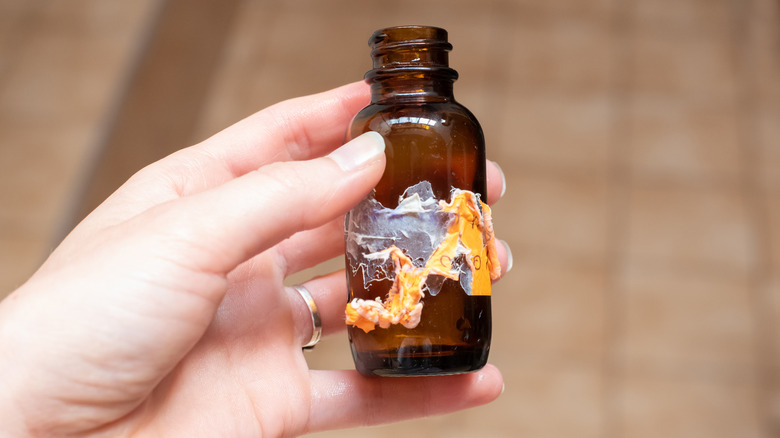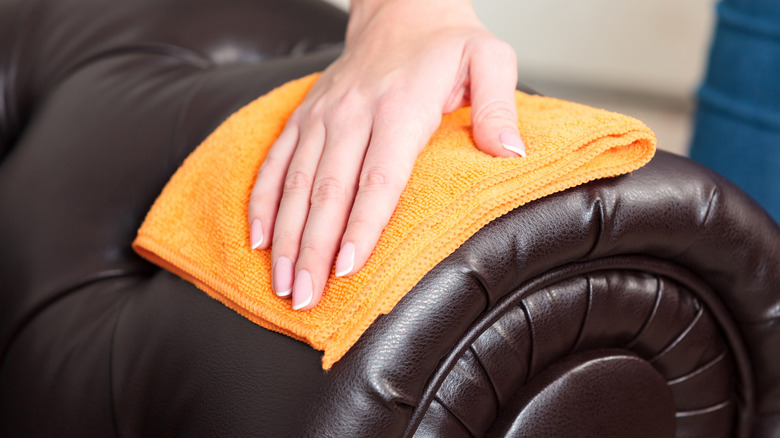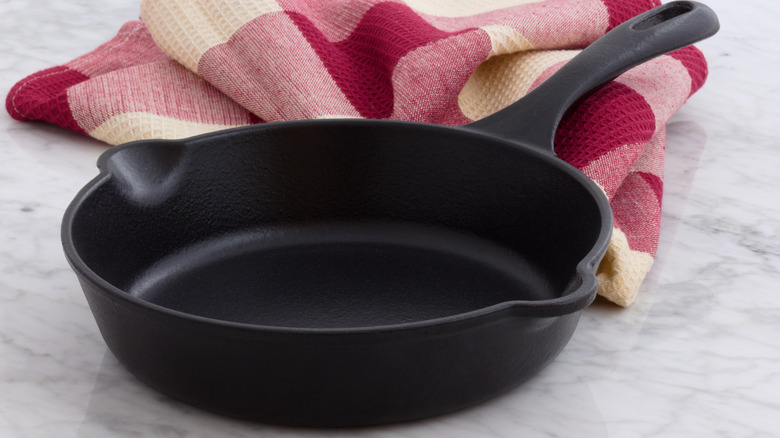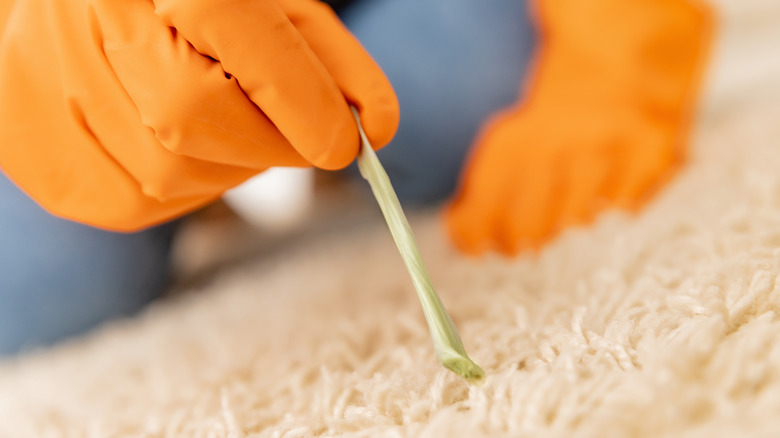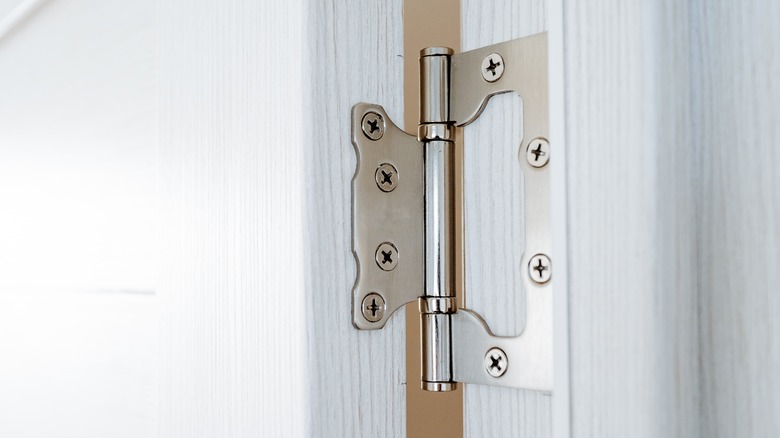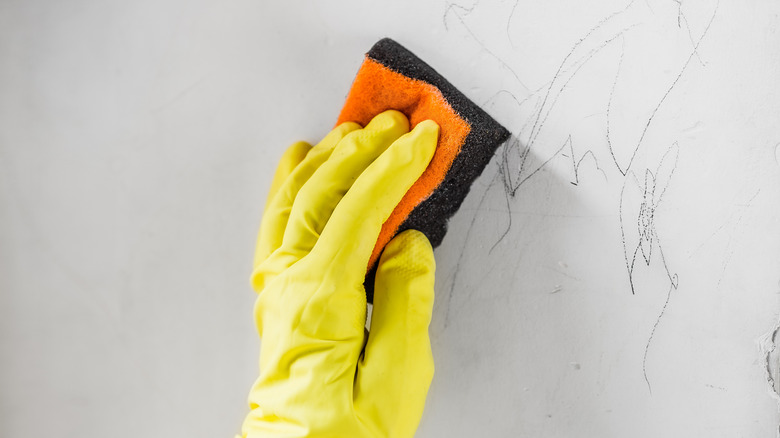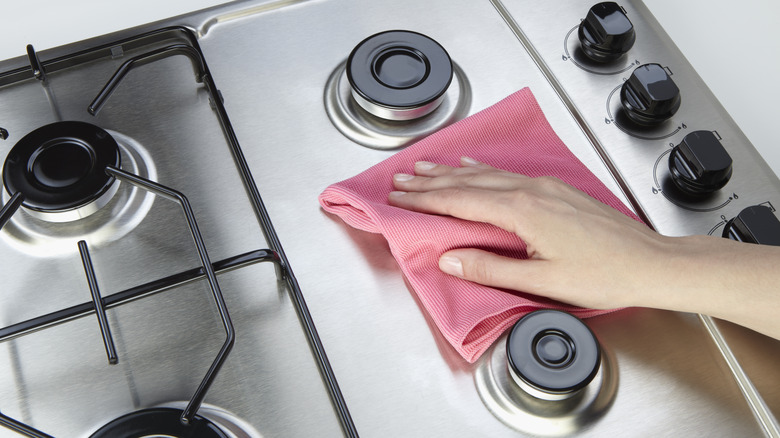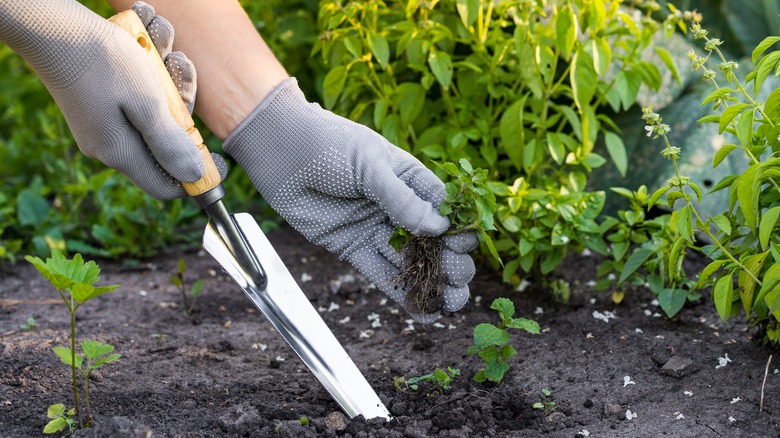11 Unique Ways You Should Be Using Coconut Oil Around Your House
Coconut oil has already developed a major reputation as a multi-use product, boasting applications for everything from soothing dry skin to boosting good cholesterol when used in cooking. The opportunities to use up the jar you have stashed in your pantry don't end with DIY face masks or family-favorite recipes, however, as there are plenty of unexpected ways to use this common household ingredient in other areas of your home as well.
Coconut oil is one of the few substances that are fatty, fairly neutral in smell, and food-safe. For this reason, it presents an alternative for quite a few other products that are intended to boost lubrication and shine without the worry of being left with chemical residue or utilizing something with a negative environmental impact. If you find yourself in a pinch, consider checking to see if coconut oil offers a solution to your problem before heading out to the store. With a product this flexible, you might be pleased with what you find.
1. Repel insects
By now, most people have learned that coconut oil acts as a great alternative to typical lotions, but this trick offers a different way to protect your skin. Results from a clinical trial published in Acta Tropica revealed that ylang-ylang and lemongrass essential oils were effective when used as a mosquito repellant. The problem, however, is that these oils aren't safe for direct use on the skin. To avoid irritation, dilute a few drops of essential oil in melted coconut oil, then apply to the skin in a spray bottle or as a salve once solidified to ward away pesky bugs.
2. Restore wood surfaces
If you notice your cutting boards are looking a bit dry or lackluster, consider rubbing in a bit of coconut oil to rehydrate and season the wood. Fractionated coconut oil, or MKT oil, essentially an ultra-processed version of the product that only leaves behind the liquid, is the best choice for the job as it won't go rancid over time or leave behind any annoying chunks. While you're at it, consider giving your wooden spoons, bowls, and serving trays the same treatment to keep them looking smooth, prevent cracking, and decrease the chances of bacteria forming and getting your family sick.
3. Remove sticker residue
Whether you're simply removing a price tag or upcycling your empty wine bottles as décor, it's likely that you'll be left with at least a little bit of stubborn sticker residue on the surface. There are plenty of hacks floating around the internet that promise to help loosen up this annoying adhesive that's often left behind, but most have one major thing in common: they utilize some kind of oil. As it turns out, coconut oil is no exception to this rule, and a bit of this multi-use product left to sit on a sticker for around 15 minutes can help it more easily peel off.
4. Clean and oil leather
Leather is well-known for its durability and long lifespan, but it can quickly deteriorate if it's not properly cared for. Leather that hasn't been treated in too long, has been exposed to the elements, or has been cleaned with the incorrect products can dry out and become prone to cracks and damage. To help prevent this, it's important to regularly condition your leather pieces to maintain their moisture and sheen, and, in many situations, coconut oil is a good choice for the job. Before going all in, however, make sure you perform a patch test to ensure your coconut oil doesn't damage or remove the color.
5. Season cast iron
If you've been cooking for a while, you're likely aware of the fact that cast iron cookware comes with a completely different set of rules than regular stainless steel or non-stick pans. One of the quirks of this material is that it needs to be seasoned to create a non-stick surface and prevent damage, and coconut oil can be used to accomplish this task. To do this yourself, preheat your oven to 325 or 350 degrees, clean your pan, and apply a thin layer of coconut oil all over. Place it in the oven for an hour or so, and, once it's cooled, you're ready to cook.
6. Polish furniture
Occasionally, wood furniture needs a bit of a refresh, and, as it turns out, this coconut oil hack is perfect for the job. To simply add a bit of shine, oil up a cloth with coconut oil and buff it onto your wood furniture. If you're looking for a total refresh, you can also mix coconut oil with a few tablespoons of lemon juice, a quarter cup of vinegar, and a few drops of your essential oil of choice to create a DIY furniture polish. Pour this mixture into a spray bottle, mist your furniture, and wipe away with a soft cloth to reveal a fresh surface.
7. Remove stuck-on chewing gum
Chewing gum is great for freshening up your breath between meals, but it's not so pleasant when it finds its way into your carpet or a family member's hair. Before you decide to break out the scissors and start hacking away, however, try loosening up the gum by rubbing the spot with some coconut oil. For years, the go-to substance to help remove gum was peanut butter thanks to its oily consistency, but coconut oil can do the same thing without leaving a light brown stain or lingering smell on your otherwise pristine carpeting.
8. Grease up hinges
WD-40 is the go-to choice for greasing up squeaky door hinges, but if you don't have any on hand, coconut oil can do the job just as well. Next time you hear your door squeak, head to the kitchen and grab your coconut oil. Apply a few drops of melted oil with a spoon or dropper, then open and close the door a few times to work the oil into the hinge. Continue adding more oil and moving the hinge back and forth until the sound is gone and the door is properly lubricated, then wipe away any excess with a rag or paper towel.
9. Remove crayon from walls
If you find yourself having to clean up a misplaced masterpiece, all you need to do is put a bit of melted coconut oil on a sponge and scrub until you notice the mark lifting. Go in with a bit of soapy water after to get rid of any residue, and the surface will look as good as new. It is, however, important to consider the kind of paint you're attempting to clean. This approach works with glossier finishes, but it might leave oil marks on something more matte. To be safe, always test in an inconspicuous area before jumping right in.
10. Polish stainless steel appliances
Stainless steel appliances look great when they're newly installed in your kitchen, but wear and tear over time can leave them looking more run-down than sparkling clean. To bring back this brand-new sheen, consider polishing them with none other than a bit of coconut oil. To do this yourself, clean the surface well to clear away any food or debris, then begin rubbing in a bit of coconut oil with a soft cloth. Wipe until there's no residue left, and you'll be left with sparkling metal surfaces without having to worry about whether or not the product is food-safe.
11. Lubricate and protect garden tools
Just like anything else around the home, gardening tools need a bit of maintenance to ensure they stay in tip-top shape season after season. Unfortunately, however, many people neglect their tools, which leads to the formation of rust and their eventual deterioration. To prevent this, all you need to do is properly rinse your tools after use, then apply a bit of coconut oil onto the metal with some steel wool to remove any existing rust, seal the metal, and protect it from the elements. As an added bonus, you might also notice that the oil causes less dirt to stick as you work.
